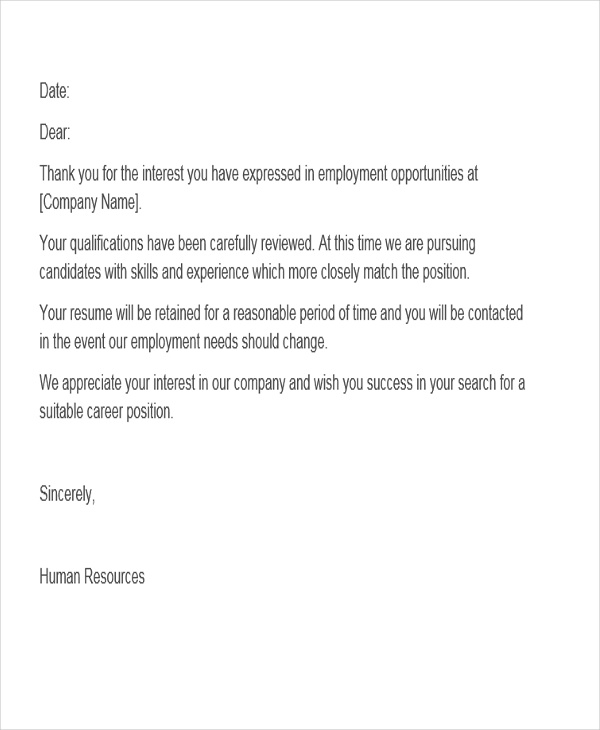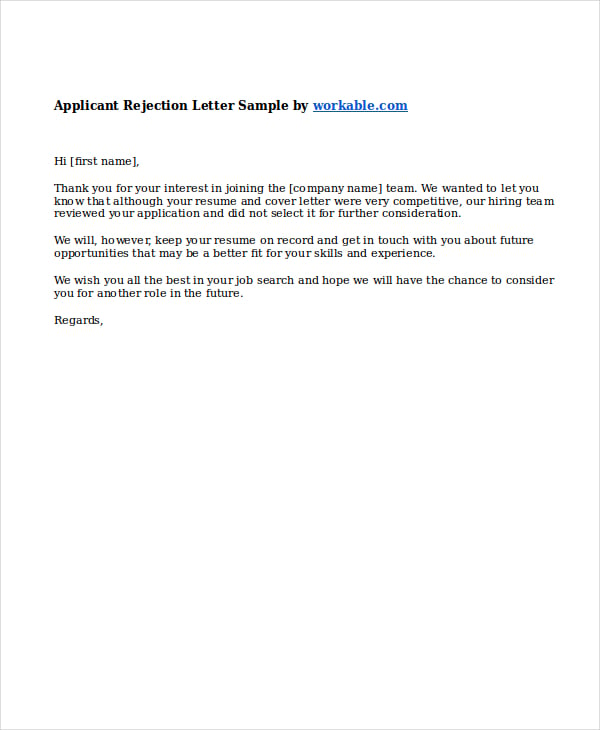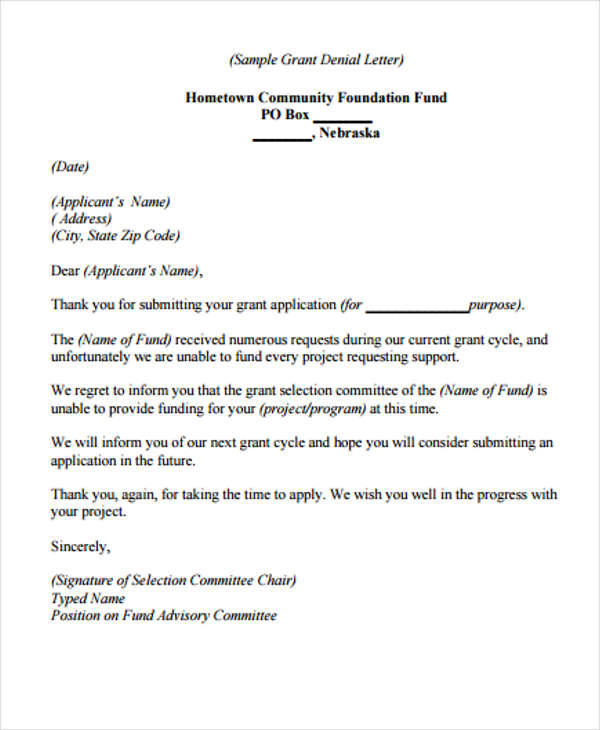Reasons to reject a candidate after interview
Can I receive rejection letters after an interview? How to reject a candidate or a job applicant? Why do people get rejected during interviews? Sloppy application.

Reasons to Reject a Job Candidate 1. Sloppy job applications are the fastest way to send job candidates into the “no” pile. Many job candidates have quality skills, but their skills aren’t always the right fit for your job. Poor time keeping Not being on time, or even early for an interview is a major deal breaker. Excuses that will not. Appearance All candidates should be suited and booted and dressed according to industry norms.
Some sectors are more. Visit the library or use the Internet to research the company , and then talk with friends , peers and other professionals about the opportunity before each meeting. Not having well informed questions to ask. There are several good reasons to answer inquiries from rejected interviewees.

First and foremost, it can create goodwill between the candidate and your company. After an interview , you must call the applicant. You owe the candidate the courtesy of a call even if you follow up the call with a rejection letter.
Make sure the applicant cannot misconstrue the words you use or find evidence of unlawful discrimination. If you do receive a rejection letter, don’t expect it to include a reason why you weren’t offered a job. Employers are concerned about discrimination issues. Answering in short the following are the major reasons for rejection in HR interviews: Not a correct fit for the company.

The candidate may have good knowledge but his value system and way of working may not match with that of the company. Reject candidates as soon as possible Show rejected candidates you value their time with quick communication. As a rule of thumb, let candidates know you’re not moving forward with their candidacy as soon as you know. With so much riding on the process, you really can’t afford to mess it up.
Here’s how to reject a candidate without hurting anyone’s feelings. Let the candidate know ASAP. Many hiring managers wait until the end of the hiring process before they notify unsuccessful candidates.

Here’s what candidates do to get rejected after an interview: 1. They don’t follow up. Following up isn’t only a way to check up on your application, it shows that you care and gives you the chance to thank your interviewers for the time they spent with you. The reasons candidates aren’t selected differ from employer to employer and can be as subjective as “culture fit”.
No matter what your reasoning, you don’t want a rejected candidate challenging your decision. Keep the conversation short and respectful by both parties. Rejection of candidate after interview letter After the recruitment process has conclude reject the unsuccessful interviewees and then destroy their personal information after a reasonable period of time, e. Even attending an interview does not guarantee you any constructive feedback. When employers do send out rejections, they tend to be impersonal and non-specific, either through a lack of time or from fear of causing offence. Failing to give feedback is one of the most common mistakes employers make.
You’re helping the candidate get another job, elsewhere, and building the labor pool—even in one small way. Sixth, the rejection should keep doors open. None of us knows what the future holds.
Our company will change, the candidate will age and grow, our needs will develop and mature (or contract!). Exciting because of the prospects of finding a candidate that will fit perfectly into your team and make it stronger, but also stressful because you’ll need to reject a number of unsuccessful candidates in the process. And dishing out the decline pie isn’t fun at all!
Comments
Post a Comment